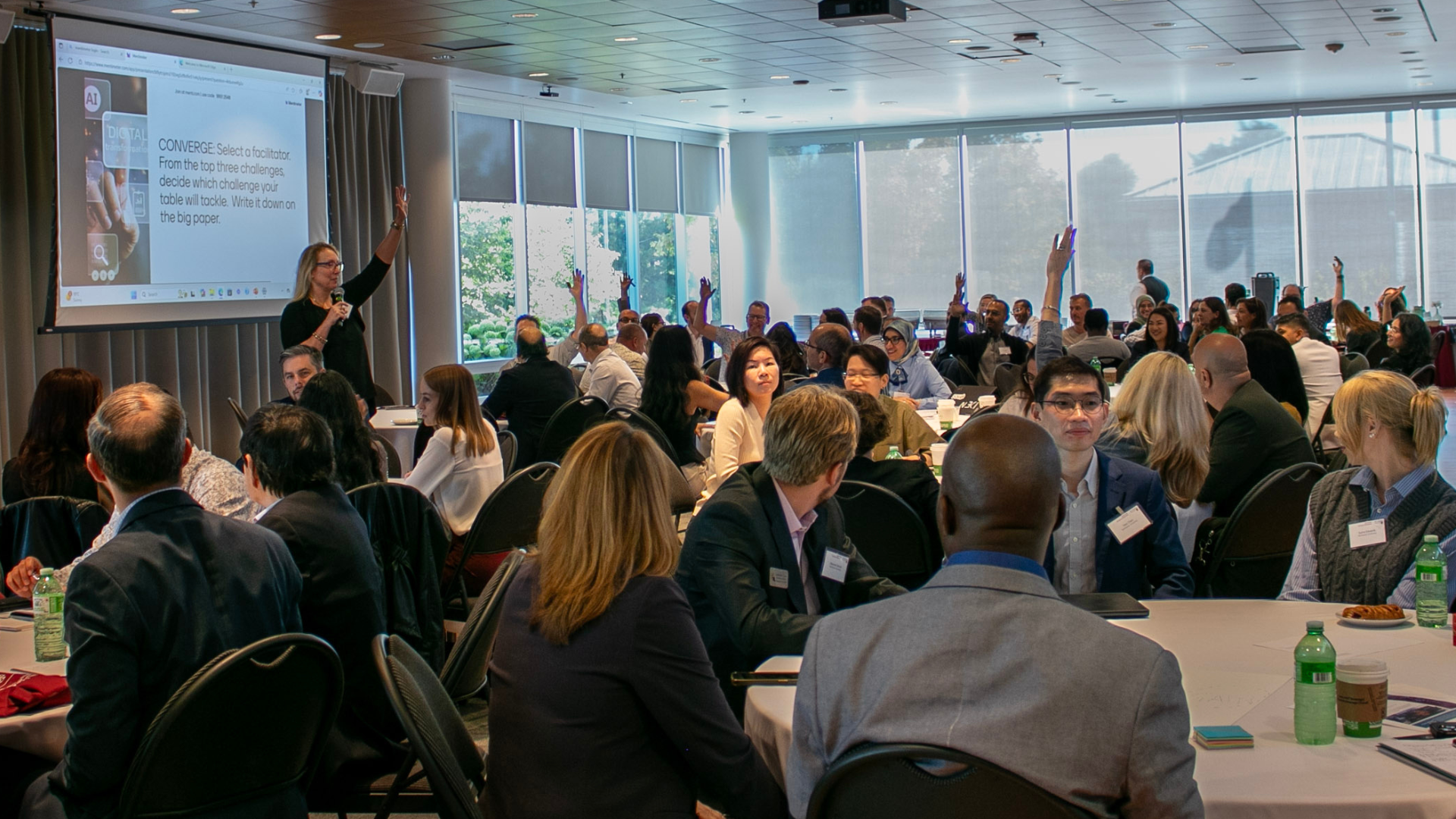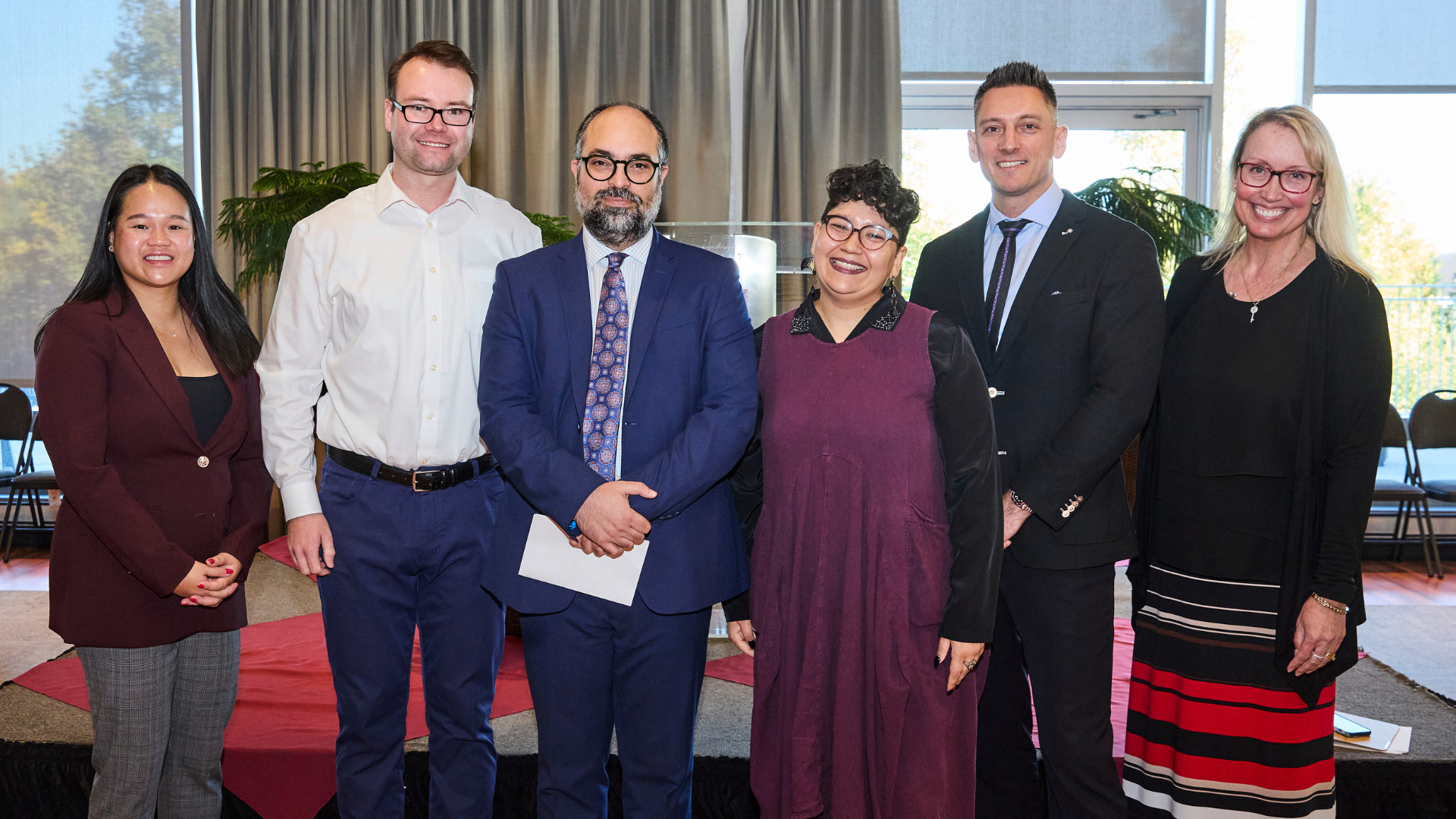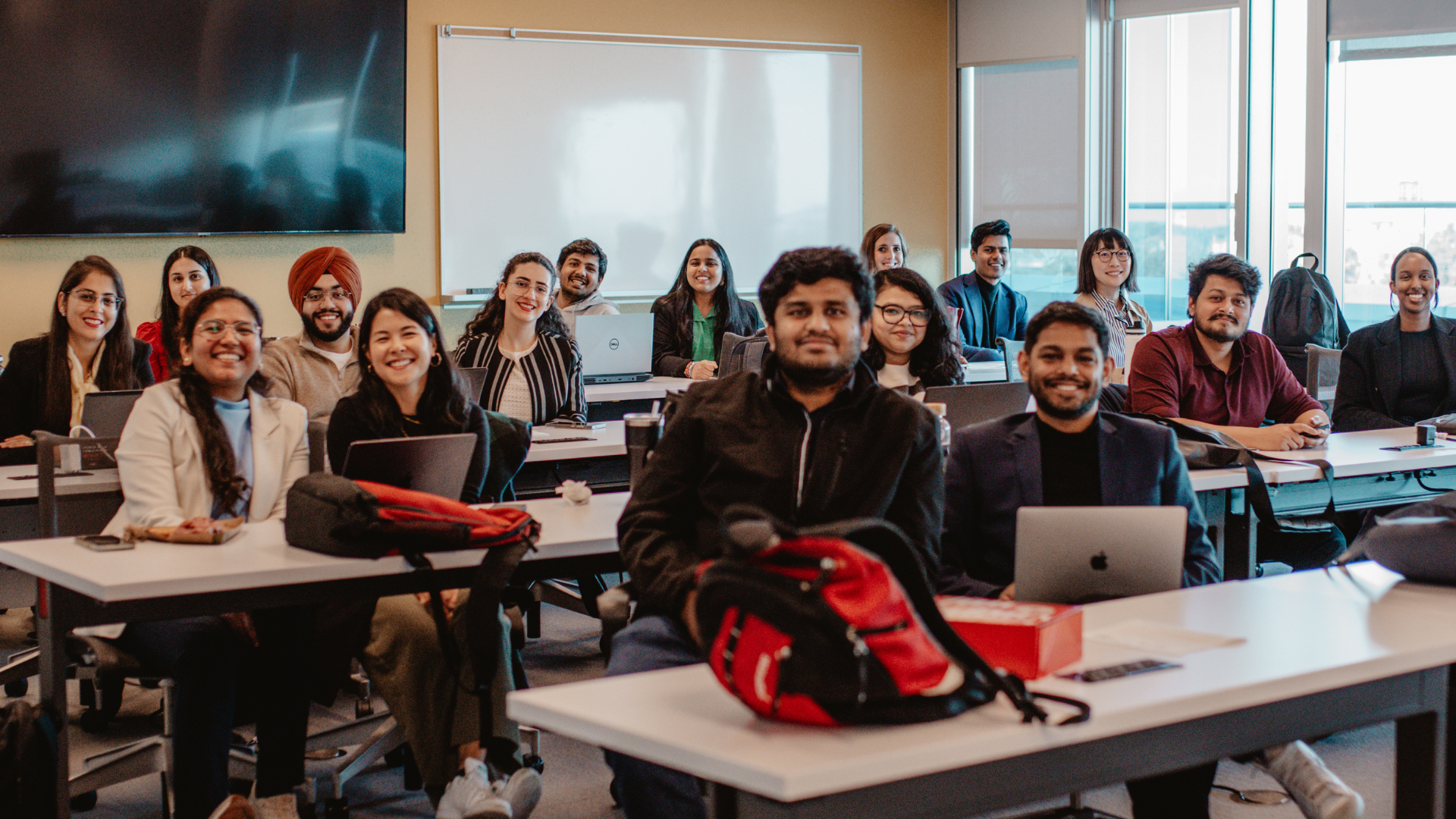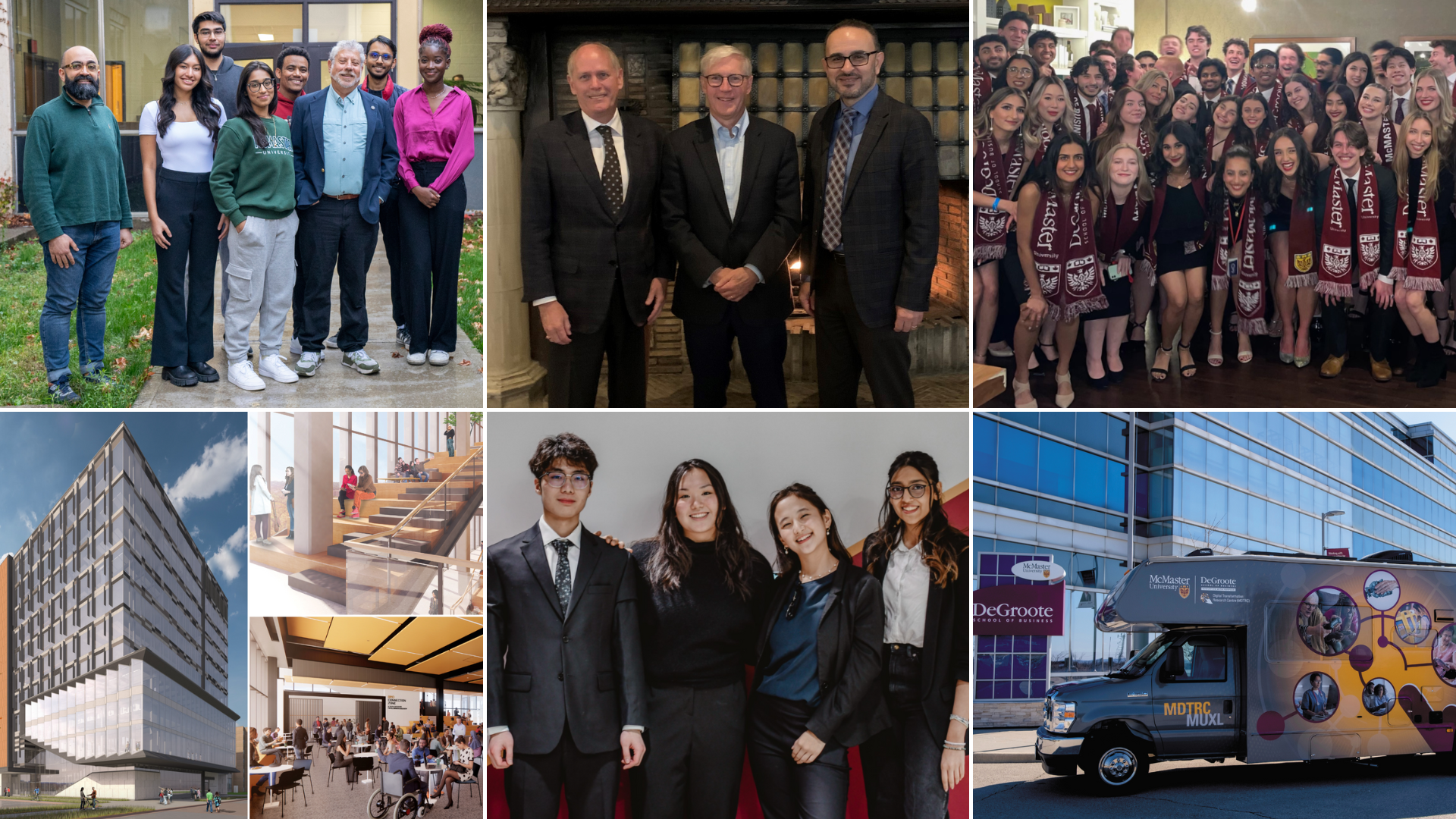Research on digital transformation
March 6, 2020 ·
Contributed by: Sarah Janes, Communications Coordinator
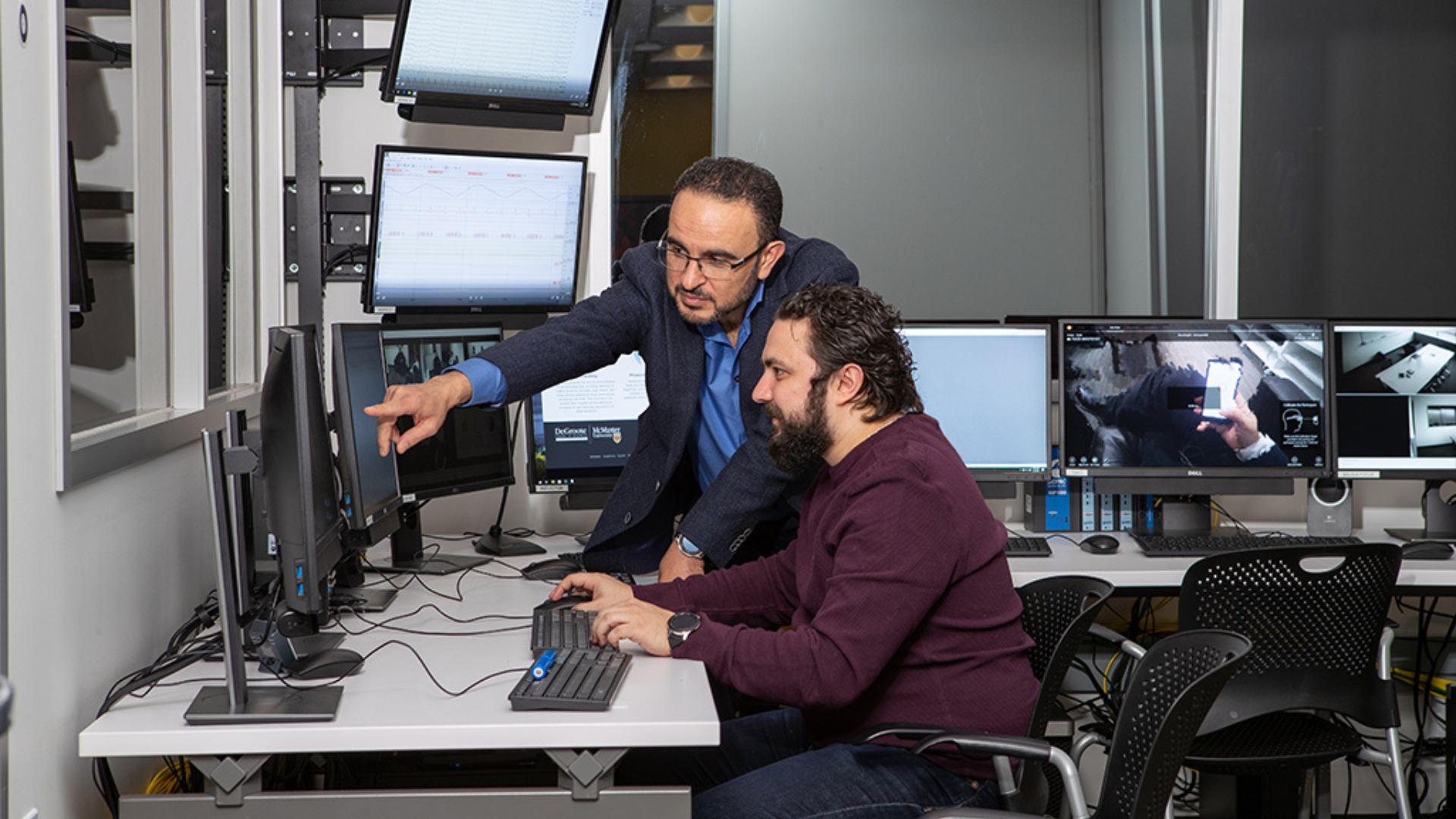

The dark side of technology, techno-stress, cognitive load, and augmented reality sound like sci-fi terms, but they are all areas of research taking place at the McMaster Digital Transformation Research Centre (MDTRC).
The centre, located at the Ron Joyce Centre in Burlington, opened in 2017 and was founded by Khaled Hassanein and Milena Head of the DeGroote School of Business. The facility is the only one of its kind in Ontario and is at the forefront of this kind of research in Canada.

Research on digital transformation at MDTRC is focused on improving the user experience with technology and is often done in collaboration with business organizations who want to enhance their customers’ satisfaction. The research uses a novel approach combining traditional research tools, such as interviews and questionnaires, with more objective neurophysiological tools. Neuro-Information Systems, or Neuro-IS, leverages neuroscience, and physiological measures to get a deeper understanding of how people interact with and make decisions using information and communication technologies. This work is done collaboratively with neuroscientists from the Department of Psychology, Neuroscience & Behaviour who offer complementary expertise.
“This is, in part, what makes the centre unique,” says Hassanein who is the Director of the Centre and Associate Dean Graduate Studies and Research at the DeGroote School of Business. “Our strength is bringing people together from different disciplines to work together on projects that relate to digital transformation.”

A recent example is a project led by Goran Calic, Assistant Professor of Strategic Management at DeGroote, and involving several members of MDTRC showed individuals experiencing online distractions that compete for their cognitive resources as more likely to overrate the creativity of an idea presented to them. These results recently published in the prestigious Scientific Reports-Nature Journal have significant implications for managerial practice in relation to the potential loss of resources associated with such behaviour.
“The centre is a gem I hope more people will discover,” says Head, who is the Wayne C. Fox Chair in Business Innovation and Academic Director of the EMBA program. “The technology that we use can enhance academic research and we can help organizations in their mission to provide valuable experiences for their customers and employees.”
It starts with a conversation between an organization and the centre to test technology, such as a cell phone app or website. A study is then executed with users interacting with the technology in question while collecting such data as their heart rate, EEG to record their brain activity, eye movements, and facial expressions to interpret their emotions. Analysis of this data can reveal the pain points that users experience when interacting with technology. Once such problems are identified, solutions are proposed and tested.

Dr. Hassanein says technology is often designed with young users in mind and this is a bias that needs to be addressed. Older individuals are one of the fastest-growing segments of internet users, and products need to be designed with them in mind. Accordingly, this is an active area of research at the Centre. An example is the research of Ph.D. Candidate Nour El Shamy focusing on understanding the cognitive biases that impact older adults’ decision making in eCommerce environments.
The centre also looks at how technology impacts a person’s experience in different environments. Techno-stress is the phenomena of technology causing user stress. This may impact productivity in a work setting, such as mobile device use during work meetings. This phenomenon is examined at the centre using a room with a one-way mirror to observe participants in a simulated work meeting. The room contains modular furniture used to make the space replicate a living room, classroom, or boardroom. Participants’ reactions to colleagues responding to a distracting text message during a work meeting are gauged using facial expression and eye-tracking data analysis. This research can inform the development of better workplace practices to enhance productivity.

Students receive training at the centre and develop a specialized skill set including how to position research questions and design experiments to use the richness of multi-method investigations. “They gain hands-on experience with state-of-the-art technologies and methods,” says Head. “This makes them highly marketable upon graduation.”


